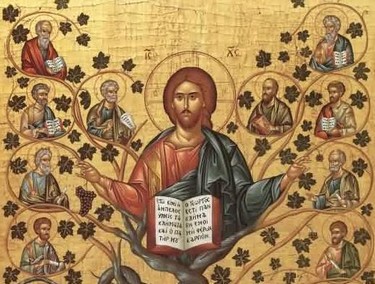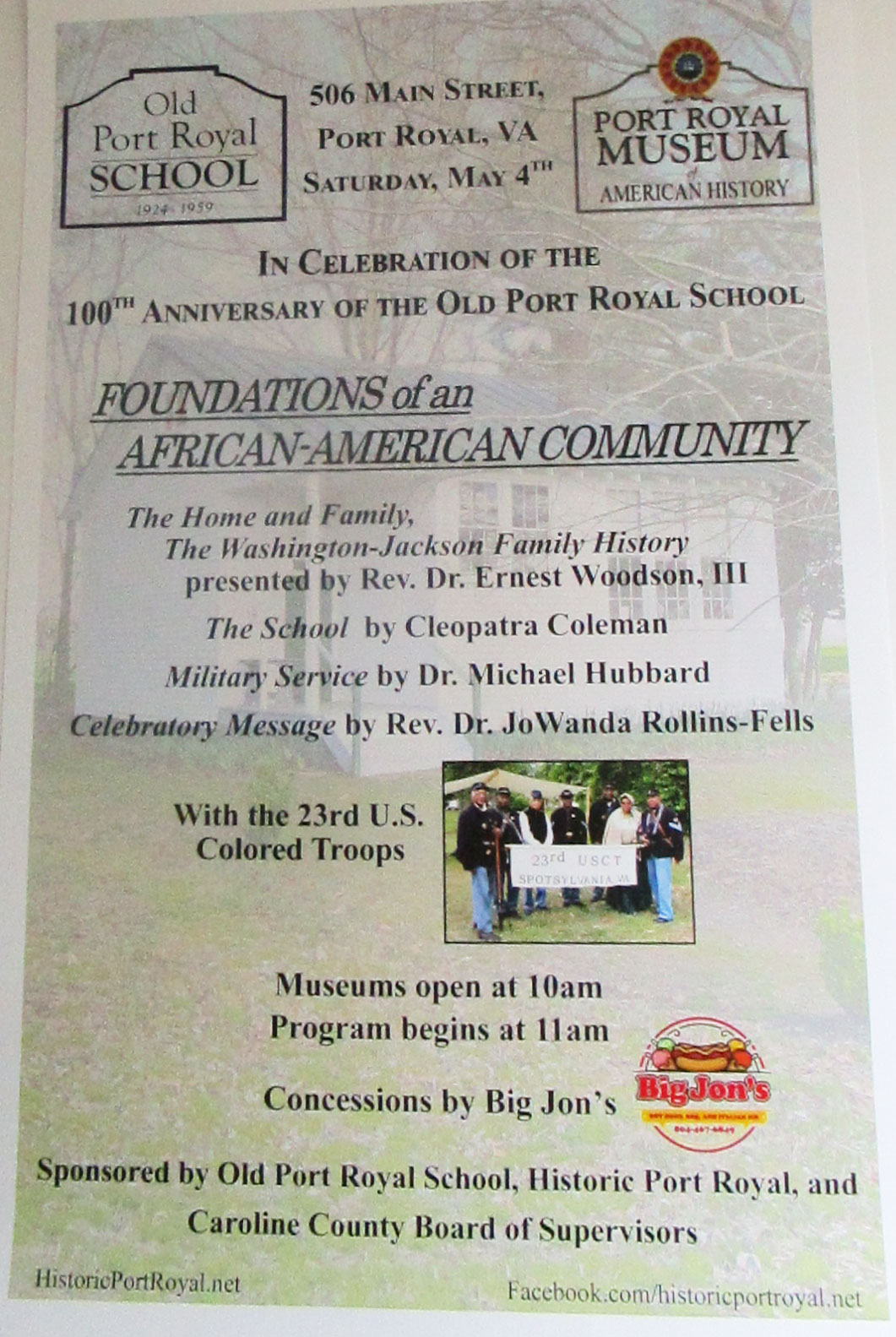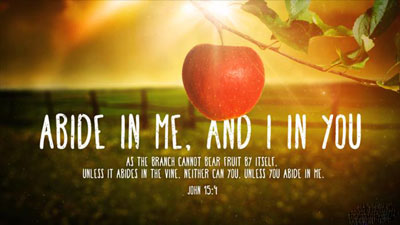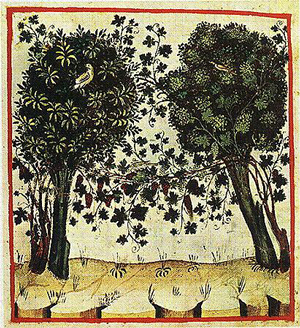I.Theme – Living in and Through Jesus

Abide in Me
Jesus said to his disciples, "I am the true vine, and my Father is the vinegrower. He removes every branch in me that bears no fruit. Every branch that bears fruit he prunes to make it bear more fruit. You have already been cleansed by the word that I have spoken to you. Abide in me as I abide in you. Just as the branch cannot bear fruit by itself unless it abides in the vine, neither can you unless you abide in me." – John 15:1-4
The lectionary readings are here or individually:
First Reading – Acts 8:26-40
Psalm – Psalm 22:24-30 Page 612, BCP
Epistle –1 John 4:7-21
Gospel – John 15:1-8
Today’s readings reveal what it means to live in and through Jesus. In Acts 8, Philip explains to the Ethiopian eunuch the good news of Jesus. The author of 1 John reveals that true faith becomes visible through the obedience of active love. In today’s gospel, Jesus explains that, like branches connected to a vine, we abide with him and experience great fruitfulness.
ACTS 8:26-40. This passage tells how the gospel became a missionary faith outside of Judaism. The story is told as part of the main theme of Acts: To trace the expansion of the early church under the leadership of the apostles from Jerusalem to the Gentile nations of the world, especially to Rome, the capital city of the empire.
Philip has been presented as evangelist to the despised Samaritans. Now he has been sent to another outsider. Ethiopia in the first century referred to southern Egypt, now the Sudan. The eunuch may have been a Gentile proselyte or a “God-fearer,” who accepted much but not all of the Jewish law. As a eunuch, he would have been barred from Jewish worship, because he could not have any male heirs, “sons of the covenant” although Isaiah prophesied the inclusion of eunuchs.
The fourth servant song from Isaiah (Isaiah 52:13–53:12), which becomes the inspiration for the eunuch’s inquiries, was central for the early Church’s understanding of Jesus’ death and resurrection as Christians searched the scriptures to find confirmation of what they had seen to be true.
PSALM 22:25-31. Psalm 22 consists of a lament repeated by Jesus on the cross and a thanksgiving in which the psalmist describes the distress he is suffering and his trust in God. These verses express unwavering confidence in God’s saving deeds. This psalm figures prominently during holy week.
1 JOHN 4:7-21. Perhaps the finest definition of God is given here: “God is love.” In this reading, the theme is set in the context of the nature of God. Love is God’s most characteristic activity. God’s love is not an emotion but an event, made known to us in and through Christ’s incarnation and our redemption. Because this love is so intricately tied to Christ, the Christian’s mission of love is of necessity a mission of witness. We love one another as a manifestation of God’s life in us.
Like partners in a dance, we are invited to love each other as God loves us. No one has seen God, but as we love one another we allow the world to catch a glimpse of God’s true nature. In fact, God’s love is somehow incomplete until we feature that love in our lives.
JOHN 15:1-8. Jesus is offering these words to his disciples on the eve of his crucifixion. He knows what is going to happen – both to himself and to his flock – and they do not. They are about to be cut down by his crucifixion and death and he is assuring them that it will not be mere, senseless cutting but that they will survive, even flourish.
The second context is that of the community for which John writes, 60 years after the resurrection. Because by the time they hear these words they have already been scattered, likely thrown out of their synagogue, and have had plenty of reason to feel like they’ve been abandoned. But John writes to assure them that while they have indeed been cut, it is the pruning for more abundant fruit and life.
The allegory of the vine and the branches offers insight into the way the early Christian community saw the redemptive relationship between God, Jesus and the faithful. John stretches the image most picturesquely.
Jesus, as Son, the representative of Israel, is “the true vine” (v. 1) who fulfills the calling of Israel. The disciples are the branches. Our life—spiritual life—flows out of that vine. To be in Christ is to draw one’s lifeblood, one’s identity, one’s purpose in life from that relationship. Outside that relationship there is no life—at least if we’re speaking spiritually. Just as the sap runs from the vine to branches, so the Spirit runs from Jesus to us.
The solid trunk of the vine emerging from the ground grows long, tender branches on which the fruit is produced. Without those branches, newly grown each year, the vine cannot produce. Cut off from the root, the branches are useful only as kindling for a fire. This was a common source of firewood in ancient times.
The expectation of the Christian life—a life lived in Christ—is that one will bear fruit. To do the commandments means to bear fruite. One’s life will reflect that mutual indwelling of Christ’s life in our life, and our life in his. God is in us, and we are in God. Galatians 5:22 mentions these things in bearing fruit – "the fruit of the Spirit is love, joy, peace, forbearance, kindness, goodness, faithfulness, gentleness and self-control."
God is described as the vine grower who cares for both the vine and the branches. The Father is the vinegrower who “prunes” (v. 2, “trims clean”) the branches. Jesus reassures the disciples that they are already “pruned” ( v. 3, translated “cleansed” in the NRSV) by his word.
For John, Christian life is an active and committed life. There cannot be a living, unproductive branch. Those who do not remain, or abide, are taken away. This is exactly what has happened to Israel and to the church through the ages. Those who do abide through prayer bear fruit and show themselves as Jesus’ disciples. Part of that caring requires rigorous pruning so that the vine continues to produce good fruit.
Read more







